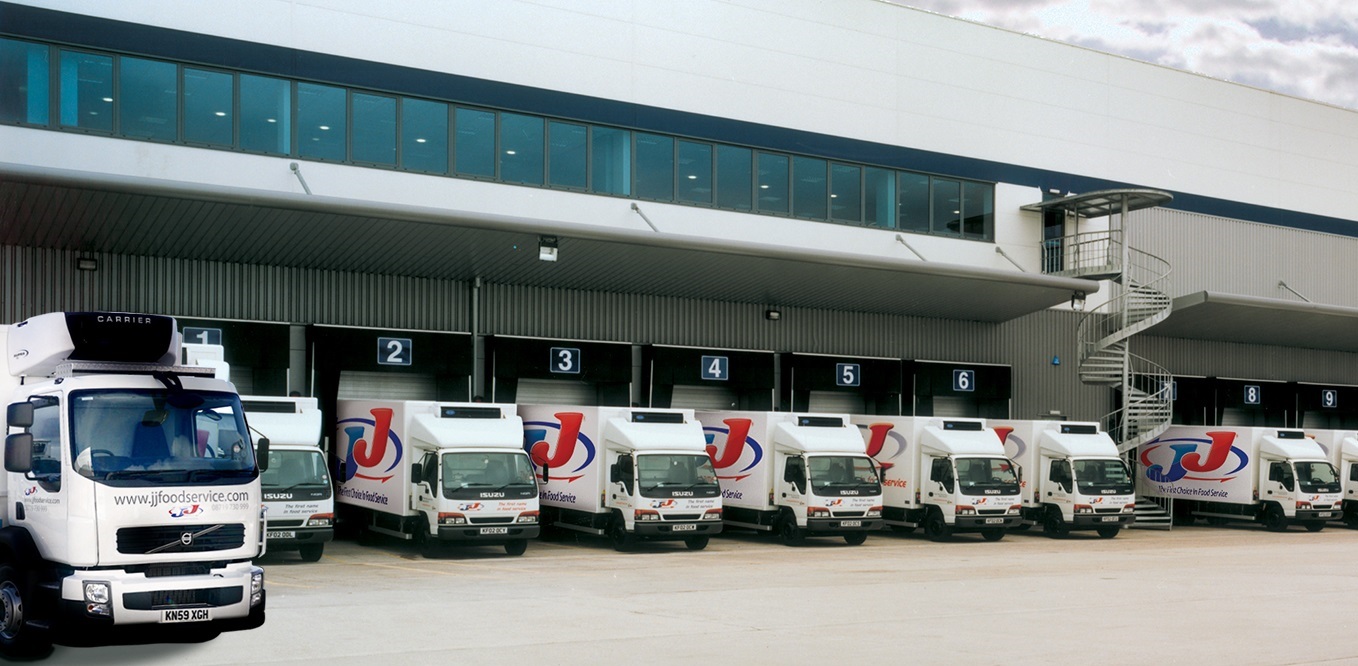Azure ML Predicts Customers’ Shopping Lists – Even Before They Shop!
We continue our series of posts on how Microsoft customers are gaining actionable insights on their data by operationalizing ML and advanced analytics – at scale and in the cloud. This post is by Vinod Anantharaman, Head of Business Strategy, Information Management and Machine Learning (IMML).
As one of the largest independent food delivery service companies in the UK, JJ Food Service provides over 60,000 customers with everything they need for their own food businesses. Their catalog has over 4,500 products ranging from fresh, frozen or dry foods to paper and cleaning supplies and get fulfilled from any of eight warehouses.
Customers can either place orders online or by speaking to call center representatives over the phone. As orders come in each day, logistics teams route and sequence these orders, employees at warehouses then load the appropriate products overnight, and drivers hit their delivery routes the next morning – and the same cycle repeats all over again.
Although the existing processes at JJ Food Service are quite streamlined, as a company that prides itself on staying at the cutting-edge of technology, their ambitions ran much further.

Back in 2004, JJ Food Service implemented Microsoft Dynamics for their ERP and CRM needs. Over the past decade, they refined their operations and Microsoft Dynamics AX now powers their entire operations – right from HR, procurement and sales to warehouse management and order processing.
Recognizing that they had an exceptionally rich vein of customer data, the Chief Operating Officer at JJ Food Service, Mushtaque Ahmed, saw an opportunity to use this data to further boost customer satisfaction. An area where they felt they could save their customers’ some time was by anticipating customer orders, i.e. recommending products to them even before they had entered anything into the system. They had several other ideas for predictive analytics too. At the same time, the company was concerned about the potentially big costs they might incur in staffing up and implementing an advanced analytics project such as this.
That’s when Azure ML entered the picture.
Predictive Shopping Lists
Customer orders at JJ Food Service, of course, vary widely in terms of what gets purchased and when, order size, type, frequency and many other criteria. In anticipating customers’ future needs, what they needed were tailored insights based on each customer’s past order patterns. For instance, a particular restaurant might order salad greens every day, flour about every two weeks, and cooking oil once a month. “To be successful, we needed to be relevant for that week, that day, that exact point in time,” Ahmed explained.
JJ Food Service was convinced that Azure ML could help them address their needs in a very cost-effective manner. They started working with the Microsoft Azure team, first writing code for their website to capture customer behavior and then using three years of transactional data to train an Azure ML predictive model. Next, they integrated the recommendations from this model into both their call center environment and their website, thus ensuring that their phone-based customers would get the exact same recommendations (via call center representatives) as what online customers would see on their site.
The system took only three months to implement. Today, whether customers call in or log in, the system bubbles up the same predictions using its analysis of past purchases – in both cases, the order pad gets filled out in the same fashion, and automatically.
The net result? More satisfied customers who find a high level of efficiency in their shopping experience.
Recommendations Add a More Personal Touch
In addition to the predictive shopping list, customers also get recommendations for related items that they might want to order. For instance, if a fish and chips shop were to order batter, the system might ask whether they need specific spices that go along with that. Also, prior to checkout, the system reviews the overall order to determine whether the combination of items shopped indicates a need for additional products. For instance, if a fast-food restaurant orders meat, poultry, vegetables and beverages, would it also need cooking oil? Or perhaps paper cups, if their supply might be running low?
JJ Food Service estimates that these recommendations currently make up about 5% of the shopping cart. While that may not seem large – and, in fact, Ahmed expects this number to go down a bit as the system gets smarter at predicting orders even more accurately – when you consider the company’s size, this really adds up. Plus it’s a nice personal touch for customers. As Ahmed says, “The wow factor is huge. Customers are amazed that we can predict so accurately what they need.”
Targeting New Customers More Effectively
JJ Food Service realizes that there’s no better way to capture business from new customers than by making themselves indispensable from the very moment they log on.
By using the Azure ML recommendation system to display products purchased by similar companies, they are now able to show immediate value to brand new customers, shaving valuable time that would otherwise be spent in browsing a new catalog and compiling orders for the first time.
At JJ Food Service this is just the start of a journey. They are looking at additional possibilities beyond increasing customer satisfaction and driving incremental sales. For instance, they plan to stock their warehouses more efficiently by using forecasts of what customers, in aggregate, are likely to buy in the near future. They are also exploring how to use the recommendation system for promotions and to target new product launches at specific types of customers.
As Ahmed concludes. “Microsoft Dynamics AX works hard for us, automating processes. But we also need to make these processes intelligent – and that’s where Microsoft Azure Machine Learning is vital.”